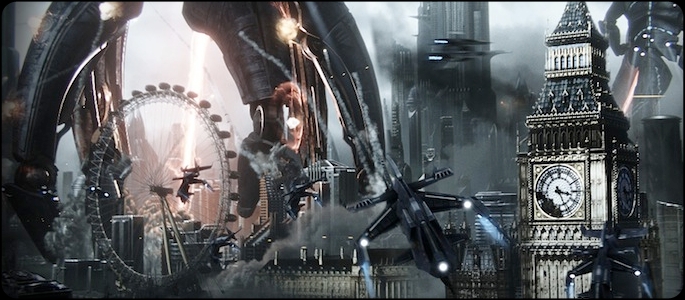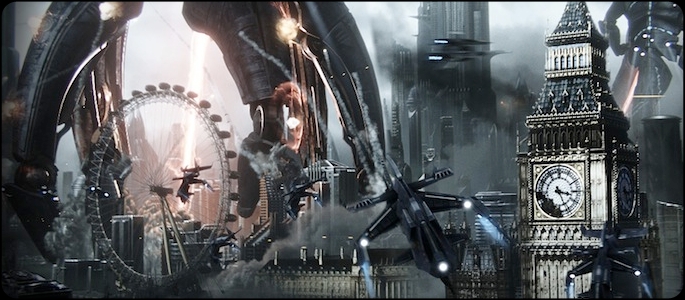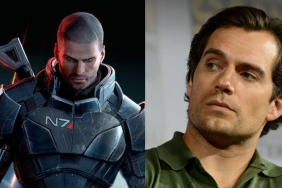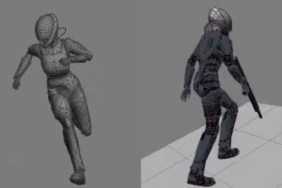
The Catalyst Child also sees itself as “innocent,” or maybe that’s how he views synthetic life. For all of his ambitions to control the outcome of life in the galaxy, the Catalyst Child also kind of sees himself as somehow removed from the “chaos” of what’s going on, but not as a mediator. He is detached from the situation in the same way as a child is removed from the affairs of adults: he doesn’t pretend to understand organics and his offer of the destruction option as the only way for organics to have peace is proof of that. He is also misguided in believing that removing the most evolved races is a form of preservation. Through the Reapers, he’s essentially committing large-scale genocide and while he’s doing it, what is he leaving behind? The technology from the previous races, like the Protheans. Technology continues to evolve and thus synthetics have the true potential to evolve further, not organics. He sees his method of preservation as a way that everyone wins, because like a child, he doesn’t have the full view of the situation to grasp what it is he’s actually doing (in this case, lacking the consideration of the perspective of organic beings). His offer of destruction is, in essence, like saying the following: “You can only have peace if we all go away.” Even his statements on how things are to Shepard is from a child’s perspective: very limited to his perspective and tailored with an innocence that makes one inclined to believe him.
Finally, on the point of being a “child,” he may very well be a “child” of organics. A.I. isn’t naturally formed, so he was either created by organics or synthetics (which, again, would’ve been created by organics).
What’s interesting about the Catalyst Child’s alleged intent of preservation is that it is so clearly and obviously a lie that it cannot be true, nor could he — even as misguided as he seems to be — as a device constructed to process information truly believe that murder is a form of preservation. Through the Reapers, he’s committing genocide — he isn’t preserving anyone. If he’s building new Reapers (i.e. the Proto-Reaper from ME2) and/or Reaper forces (i.e. husks) from the remains of his enemies, he’s not preserving them. His actions, if anything, strengthen the Reapers to be better able to wipe out organic life in future cycles. Perhaps giving the Catalyst Child the credit of being “innocent” is far too much credit to give him, as he has his own perversion of the process of evolution — the above-mentioned Proto-Reaper and husks — which further demonstrate his vision of a fusion between organics and synthetics (thus the “synthesis” option) and make a point of how weak he perceives organics to be without technology. He destroys them with their own superior evolutionary and technological counterparts, leaving nothing but weaker races in his wake to eventually fend them off, as humans did the Collectors.
If he is not innocent, that leaves the possibilities that the child is afraid of organics to the extent of massive scale reactionary malice or is truly evil and hateful of organics, masking himself in a child’s body to throw Shepard off guard. Either way, if he is aware of what he’s doing and how evil it is, he cannot tell Shepard the truth. The “misguided rationale” theory from above also has the Catalyst Child deliberately lying to Shepard, but more out of misplaced self-preservation than deliberate harm. If he knows what he’s doing is evil, then he cannot tell Shepard the truth about why it is he does what he does.
Why leave any organic life around the first place if he’s truly evil? His view on the war, even if he truly believes it, doesn’t make sense in the first place. As mentioned above, maybe he lacks the will to take organics out completely or maybe he needs them for something, or maybe there’s another reason we just haven’t been made aware of yet. However, nothing about the Catalyst Child’s methodology for dealing with organics truly makes sense at all.
A number of theories exist as to what actually was happening in the final events of Mass Effect 3, but not enough information is communicated to truly define what occurred one way or the other. Hopefully, the “extended cut” DLC arriving this summer will provide some much-needed insight into these events — especially the Catalyst Child — and help give gamers some closure. The “Catalyst Child Is Lying” theory is one that I’ve thought about since finishing the game and while I did put quite a bit of work into it, it’s not anything that I hold dear or believe as “the truth” on what happened. It’s just a theory and truly is welcome to be discussed or to have constructive criticism offered on it. Also, the theory is not an attempt to reject BioWare’s ending of the game, protest Mass Effect 3 or anything of the sort — it’s just one interpretation of what might’ve happened and is open to discussion in the comments below.








